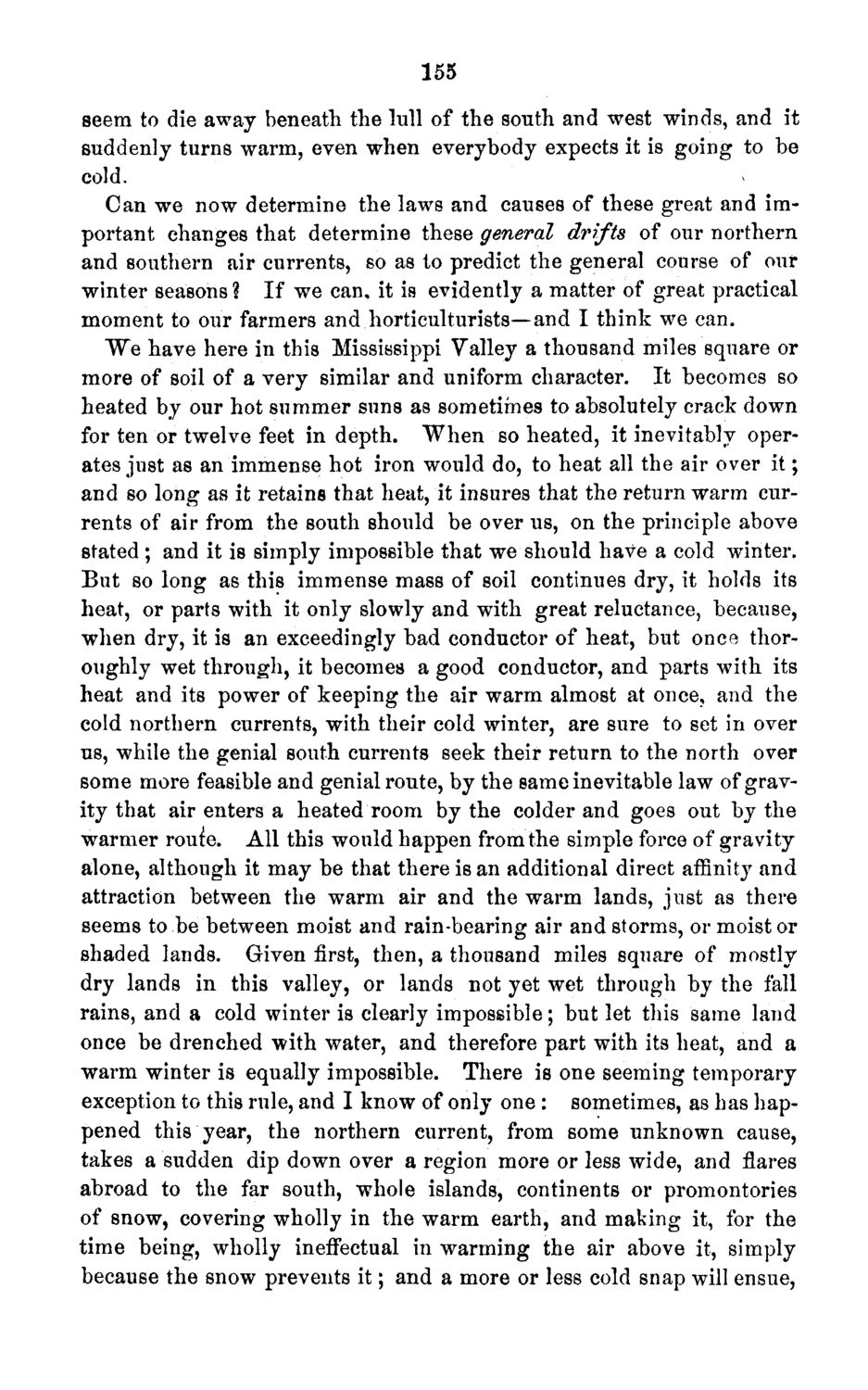| |
| |
Caption: Board of Trustees Minutes - 1871
This is a reduced-resolution page image for fast online browsing.

EXTRACTED TEXT FROM PAGE:
155 seem to die away beneath the lull of the south and west winds, and it suddenly turns warm, even when everybody expects it is going to be cold. Can we now determine the laws and causes of these great and important changes that determine these general drifts of our northern and southern air currents, so as to predict the general course of our winter seasons? If we can. it is evidently a matter of great practical moment to our farmers and horticulturists—and I think we can. We have here in this Mississippi Valley a thousand miles square or more of soil of a very similar and uniform character. It becomes so heated by our hot summer suns as sometimes to absolutely crack down for ten or twelve feet in depth. When so heated, it inevitably operates just as an immense hot iron would do, to heat all the air over i t ; and so long as it retains that heat, it insures that the return warm currents of air from the south should be over us, on the principle above stated; and it is simply impossible that we should have a cold winter. But so long as this immense mass of soil continues dry, it holds its heat, or parts with it only slowly and with great reluctance, because, when dry, it is an exceedingly bad conductor of heat, but once thoroughly wet through, it becomes a good conductor, and parts with its heat and its power of keeping the air warm almost at once, and the cold northern currents, with their cold winter, are sure to set in over us, while the genial south currents seek their return to the north over some more feasible and genial route, by the same inevitable law of gravity that air enters a heated room by the colder and goes out by the warmer roufa. All this would happen from the simple force of gravity alone, although it may be that there is an additional direct affinity and attraction between the warm air and the warm lands, just as there seems to be between moist and rain-bearing air and storms, or moist or shaded lands. Given first, then, a thousand miles square of mostly dry lands in this valley, or lands not yet wet through by the fall rains, and a cold winter is clearly impossible; but let this same land once be drenched with water, and therefore part with its heat, and a warm winter is equally impossible. There is one seeming temporary exception to this rule, and I know of only one : sometimes, as has happened this year, the northern current, from some unknown cause, takes a sudden dip down over a region more or less wide, and flares abroad to the far south, whole islands, continents or promontories of snow, covering wholly in the warm earth, and making it, for the time being, wholly ineffectual in warming the air above it, simply because the snow prevents i t ; and a more or less cold snap will ensue,
| |